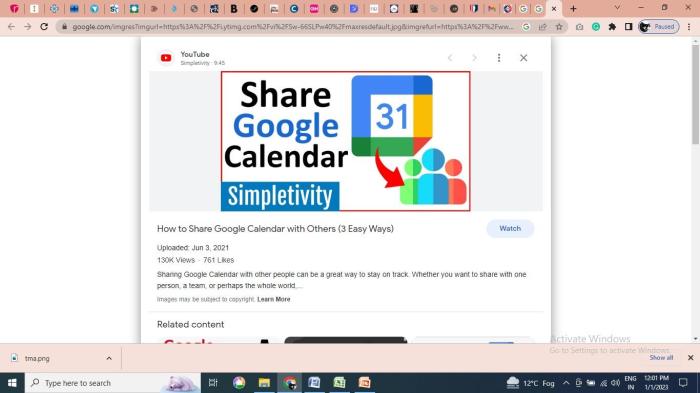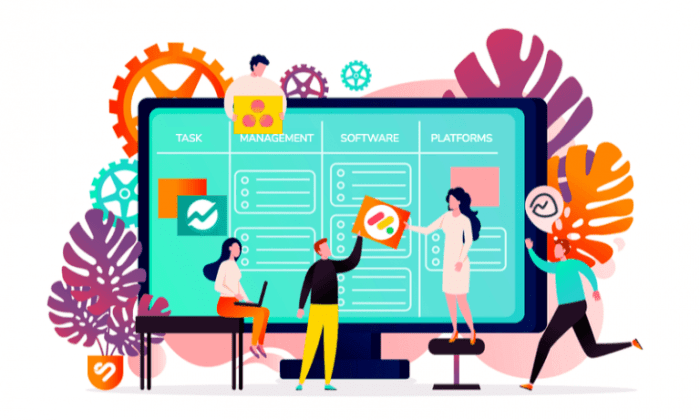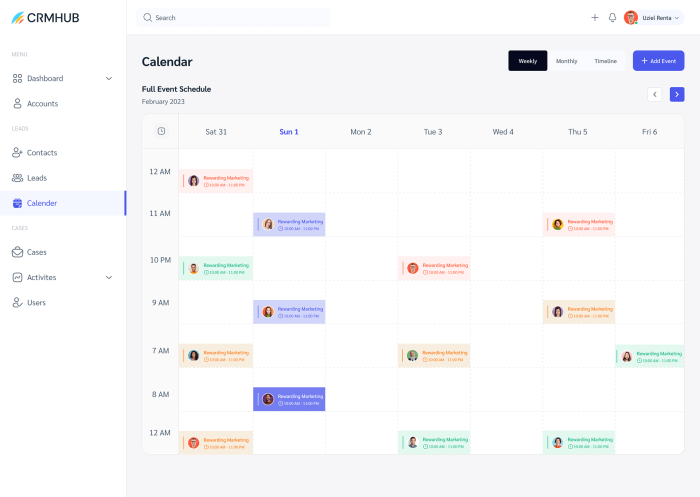Crm and task management software – In today’s fast-paced business environment, efficient organization and streamlined workflows are paramount to success. This is where Customer Relationship Management (CRM) and task management software step in, offering powerful tools to manage customer interactions and team productivity. While often used separately, integrating CRM and task management functionalities can significantly boost overall efficiency and business growth. This detailed guide explores both systems individually and collectively, highlighting their benefits, features, and integration possibilities.
Understanding Customer Relationship Management (CRM) Software
CRM software is designed to centralize and manage all interactions with current and potential customers. It encompasses a wide range of functionalities aimed at improving customer relationships and driving sales. Key features include:
Core CRM Features:
- Contact Management: Storing and organizing customer information, including contact details, purchase history, and communication logs. This enables personalized interactions and targeted marketing.
- Sales Management: Tracking leads, managing sales pipelines, forecasting sales, and automating sales processes. This enhances sales efficiency and improves conversion rates.
- Marketing Automation: Automating marketing tasks like email campaigns, social media posting, and lead nurturing. This streamlines marketing efforts and improves ROI.
- Customer Service Management: Managing customer inquiries, resolving issues, and tracking customer satisfaction. This improves customer experience and loyalty.
- Reporting and Analytics: Generating reports on key performance indicators (KPIs) to track progress, identify areas for improvement, and make data-driven decisions. This provides valuable insights into customer behavior and business performance.
Types of CRM Software:, Crm and task management software
- Operational CRM: Automates and streamlines business processes related to customer interactions, such as sales, marketing, and customer service.
- Analytical CRM: Uses data analysis to gain insights into customer behavior, preferences, and trends. This information is used to improve marketing strategies and personalize customer experiences.
- Collaborative CRM: Facilitates communication and collaboration between different departments and teams to improve customer service and satisfaction.
Popular CRM Software Examples:
- Salesforce
- HubSpot
- Zoho CRM
- Microsoft Dynamics 365
- Pipedrive
Understanding Task Management Software
Task management software helps individuals and teams organize, prioritize, and track tasks and projects. It improves productivity, collaboration, and accountability. Key features include:
Core Task Management Features:
- Task Creation and Assignment: Creating, assigning, and delegating tasks to team members.
- Prioritization and Scheduling: Prioritizing tasks based on urgency and importance, and scheduling tasks for optimal workflow.
- Progress Tracking: Monitoring task progress, identifying bottlenecks, and ensuring timely completion.
- Collaboration and Communication: Facilitating communication and collaboration among team members through comments, file sharing, and notifications.
- Reporting and Analytics: Generating reports on team productivity, task completion rates, and project timelines.
- Integration with other tools: Seamless integration with other software such as calendars, email clients, and project management tools.
Types of Task Management Software:
- Kanban Boards: Visual representation of workflow, ideal for agile methodologies.
- List-based Task Managers: Simple and straightforward task lists, suitable for individual use or small teams.
- Calendar-based Task Managers: Integrate tasks with calendars, providing a visual schedule of tasks.
- Project Management Software: More comprehensive tools for managing complex projects with multiple tasks and team members.
Popular Task Management Software Examples:
- Asana
- Trello
- Monday.com
- Notion
- Todoist
Integrating CRM and Task Management Software
Integrating CRM and task management software creates a powerful synergy, enhancing both customer relationship management and team productivity. This integration allows for seamless workflow between managing customer interactions and completing related tasks. For example, a sales representative can create a task to follow up with a lead directly within the CRM system, ensuring timely action and improving conversion rates.
This integration can:
- Improve Sales Productivity: Sales reps can manage their activities, track progress, and prioritize tasks related to specific leads or accounts.
- Enhance Customer Service: Customer service teams can track and manage customer issues, ensuring timely resolution and improved customer satisfaction.
- Streamline Marketing Campaigns: Marketing teams can track campaign performance, manage tasks related to content creation and distribution, and measure the effectiveness of their efforts.
- Boost Team Collaboration: Integrating systems facilitates better communication and collaboration between sales, marketing, and customer service teams.
- Improve Data Visibility: Having all customer and task information in one place provides a clearer view of the entire business process.
Choosing the Right CRM and Task Management Software
Selecting the appropriate software depends on your specific business needs, budget, and team size. Consider the following factors:
- Scalability: Choose software that can grow with your business.
- Integration capabilities: Ensure the software integrates with other tools you use.
- User-friendliness: Select software that is easy to use and navigate.
- Cost: Consider the pricing model and ensure it fits your budget.
- Customer support: Choose software with reliable customer support.
Frequently Asked Questions (FAQ)
- Q: What is the difference between CRM and task management software? A: CRM focuses on managing customer relationships and sales processes, while task management focuses on organizing and tracking tasks and projects.
- Q: Can I use CRM and task management software separately? A: Yes, but integrating them significantly improves efficiency and workflow.
- Q: What are the benefits of integrating CRM and task management software? A: Improved sales productivity, enhanced customer service, streamlined marketing campaigns, boosted team collaboration, and improved data visibility.
- Q: How do I choose the right CRM and task management software for my business? A: Consider scalability, integration capabilities, user-friendliness, cost, and customer support.
- Q: Are there free CRM and task management software options? A: Yes, many providers offer free plans or freemium models with limited features.
Conclusion
Implementing CRM and task management software, either individually or in an integrated solution, is crucial for modern businesses aiming for efficiency and growth. By understanding the functionalities, benefits, and integration possibilities, businesses can leverage these tools to optimize workflows, improve customer relationships, and drive success. Choosing the right software requires careful consideration of your specific needs and business goals.
Call to Action: Crm And Task Management Software
Ready to streamline your business processes and boost productivity? Explore the leading CRM and task management solutions today and find the perfect fit for your organization. Start your free trial or request a demo to experience the transformative power of these essential business tools!
FAQ
What are the key differences between CRM and task management software?

Source: isu.pub
CRM focuses on managing customer interactions and data, while task management focuses on organizing and tracking individual and team tasks. While distinct, they often work best together.
How much does CRM and task management software typically cost?
Pricing varies widely depending on features, scale, and vendor. Options range from free, basic plans to enterprise-level solutions with substantial monthly or annual fees.

Source: snacknation.com
What are some popular examples of integrated CRM and task management software?

Source: behance.net
Many platforms offer integrated solutions or robust integrations. Examples include Salesforce, HubSpot, Zoho CRM, and monday.com, among others. Research is key to finding the best fit for your specific needs.
Is it difficult to implement CRM and task management software?
Implementation complexity depends on the chosen software and the size of the business. Some systems are user-friendly and require minimal training, while others may require more extensive setup and employee onboarding.
